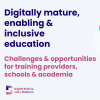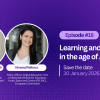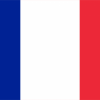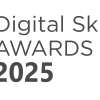AgileEDU podcast episode 9: Playful Learning, Data Literacy and Wellbeing
The AgileEDU project is a three-year initiative (2023–2026) coordinated by European Schoolnet and with partners from the University College Copenhagen (Denmark), University of Oslo (Norway), Portuguese Ministry of Education (Portugal), Foundation Empieza por Educar (Spain), and the Swedish Association of Local Authorities and Regions (Sweden); with the French and Slovenian Ministries of Education are associated partners.
It aims to address the challenges and opportunities presented by the growing use of digital tools in education—an acceleration largely driven by the Covid-19 pandemic. The project focuses on critical issues such as the pedagogical use of learning data, data protection, equity in access to digital tools, ethical considerations, and the governance of educational data.
Through two main strands—research and stakeholder engagement - AgileEDU explores how digitalisation can support high-quality, inclusive education aligned with the EU Digital Education Action Plan 2021–2027. It combines case studies and practitioner learning stories with structured stakeholder dialogue events ("Dialogue Labs") involving teachers, policymakers, students, parents, and EdTech providers. Key project outputs include practical resources such as professional development materials for teachers, a MOOC, and policy recommendations to guide the ethical and effective use of data in education.
Podcast Episode 9: Playful Learning for Digital Skills and Student Wellbeing
As digitalisation rapidly reshapes the education landscape, schools face increasing challenges related to student engagement, screen time, and wellbeing. In this podcast episode published as part of the AgileEDU project, Vibeke Schrøder and Niels-Peder Osmundsen Hjøllund from University College Copenhagen delve into how playful learning can offer a more balanced, human-centred approach to digital education - one that cultivates creativity, critical thinking, and responsible technology use.
Hjøllund, a senior consultant and researcher, and Schrøder, an assistant professor with expertise in inclusive digital learning environments, draw on their work in Denmark and within the EU-funded Agile EDU project. They explain how playful learning shifts the focus from simply using digital tools to understanding the broader implications of digital systems - a transition that Denmark has embraced through a national move from "digital literacy" to "technology comprehension." This approach equips students not just with technical skills, but with the ability to think critically about algorithms, data, AI, and their impact on society.
One compelling classroom example shared in the episode involves Danish students exploring mobile phone use in schools. Instead of being passively told to reduce screen time, students tracked their own behaviours, analysed the data, and presented their findings - engaging in real-world data literacy and fostering a sense of ownership over their learning. This hands-on, playful approach proved to be not only more engaging, but also more impactful in developing both digital and social-emotional skills.
The episode also explores the challenges of implementing playful learning in traditional school settings. Shifting away from rigid, outcome-based teaching methods requires mindset changes, professional development, and institutional support. However, research findings from the Play@Heart project, in which Hjøllund was involved, suggest that even incremental steps toward playful learning can significantly improve student motivation and enhance the purposeful use of digital tools in the classroom.
As part of the Agile EDU project - coordinated by European Schoolnet with partners from across Europe - this work contributes to a broader effort to explore how digital education can remain inclusive, ethical, and high-quality. The project is producing a series of learning stories, case studies, and a teacher training MOOC (launching in April 2025) to support this goal. One of the upcoming case studies will explore in detail the role of playful learning in fostering digital and data literacy.
This episode is a valuable resource for educators, school leaders, and policymakers interested in rethinking how digital skills are taught—not just by adding more technology, but by engaging students in playful, meaningful, and critically reflective learning experiences.
Digital skills resource details
Podcast episode





